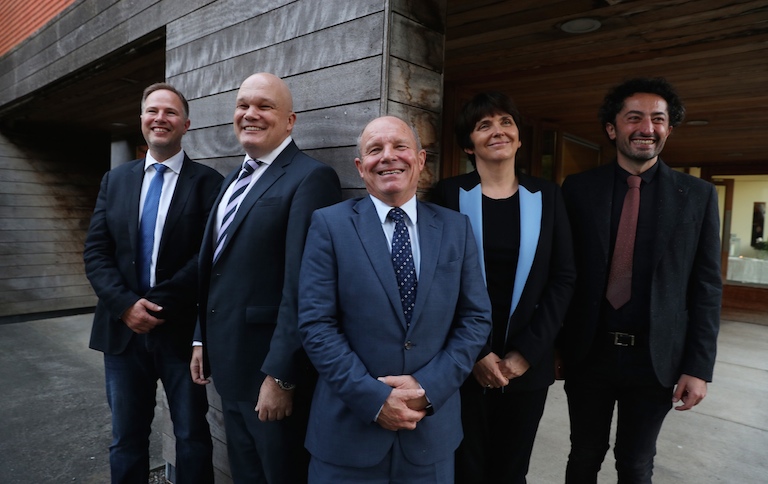How can we make cities better places to live, asks new UCD research centre

Posted November 02, 2017
- Founders have collectively received more than €7 million in research funding
A new research centre at University College Dublin (UCD) will investigate how cities can become healthier and more prosperous places for their citizens.
The interdisciplinary Spatial Dynamics Lab, established by Dr Dieter F. Kogler and Dr Francesco Pilla, will provide advancements in the analysis of innovation processes, environmental impact, evolutionary patterns and structural change at a city and regional scale.
Dr Kogler is a (opens in a new window)European Research Council (ERC) Starter Grant Holder whose five-year, €1.5 million funded research project is titled Technology Evolution in Regional Economies (TechEvo).
TechEvo will produce a series of economic indicators, models and tools for use by firms and policymakers across Europe. This will allow more informed and better location-based investment decisions to boost innovation and drive regional prosperity.
Dr Pilla is the coordinator and principal investigator of a three-year, €5.8 million (opens in a new window)Horizon 2020-funded research project titled Improving the Smart Control of Air Pollution in Europe (iSCAPE).
The overall objective of iSCAPE is to develop an integrated strategy for air pollution control in European cities. It will do this through the introduction of trees and green walls in urban spaces to assist with air pollution dispersion, policy interventions and analysis of changes in the lifestyles of citizens.
Pictured top (l-r): Dr Dieter F. Kogler, co-founder, UCD Spatial Dynamics Lab; Professor Peter Clinch, Head,
UCD School of Architecture, Planning and Environmental Policy; Emeritus Professor John Goddard OBE,
guest speaker, Newcastle University; Professor Orla Feely, UCD Vice-President for Research, Innovation
and Impact and Dr Francesco Pilla, co-founder, UCD Spatial Dynamics Lab.
“The cross-fertilisation of ideas derived from different, but complementary scientific backgrounds, holds the potential for ‘real’ breakthrough discoveries and entirely new research avenues,” said Dr Kogler, UCD School of Geography.
“In this regard the long-term goal of the UCD Spatial Dynamics Lab is to establish itself as an international renowned hub of scientific expertise specialising in the visualisation and analysis of socioeconomic and environmental spatial data.”
“The UCD Spatial Dynamics Lab aims to serve as a showcase for expertise that will assist researchers, practitioners, industry partners and policy makers in building and maintaining strong strategic partnerships,” said Dr Pilla, UCD School of Architecture, Planning and Environmental Policy.
“Global challenges require ideas and expertise from a range of disciplines, and the areas in which we at UCD seek to deliver impact are not arranged exclusively within traditional disciplinary boundaries,” said Professor Orla Feely, UCD Vice-President for Research, Innovation and Impact.
“The work of the interdisciplinary team at the UCD Spatial Dynamics Lab on socioeconomic, environmental and sustainable development issues has the potential to deliver economic and social impact both within Ireland and globally.”
Emeritus Professor John Goddard OBE, Newcastle University, who founded and led the University’s Centre for Urban and Regional Development Studies (CURDS) from 1977 to 1998 was the guest speaker at the launch event.
By: Jonny Baxter, digital journalist, UCD University Relations
UCD academics on The Conversation
- Opinion: The leap year is February 29, not December 32 due to a Roman calendar quirk – and fastidious medieval monks
- Opinion: Nigeria’s ban on alcohol sold in small sachets will help tackle underage drinking
- Opinion: Nostalgia in politics - Pan-European study sheds light on how (and why) parties appeal to the past in their election campaigns






